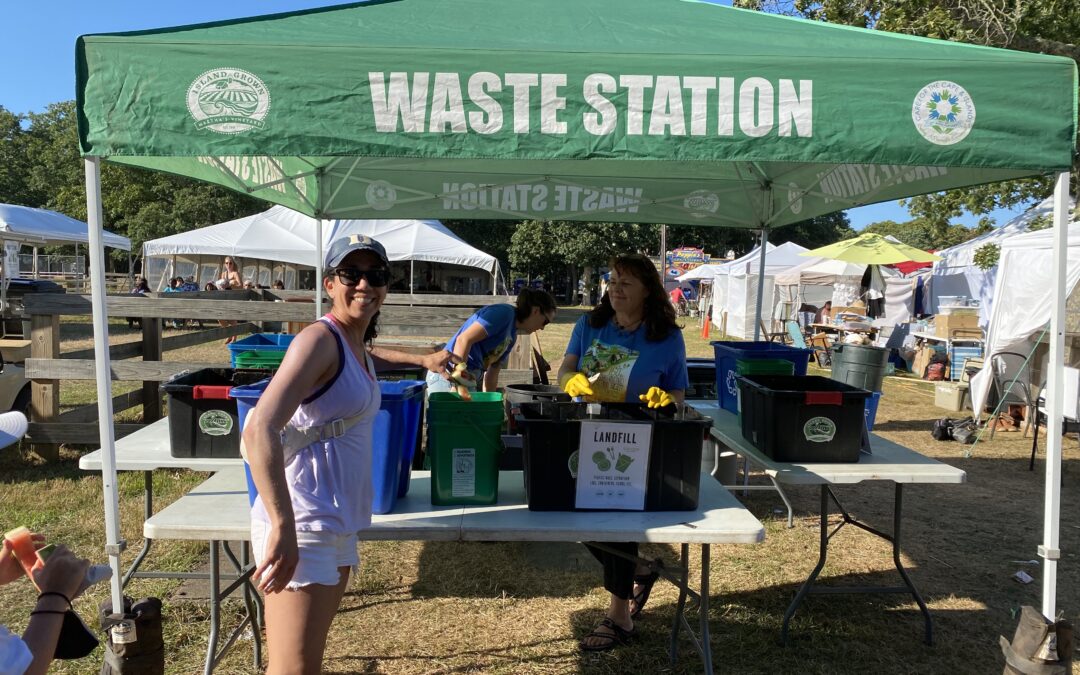In 2017 CARE gave a grant to fund waste stations at Martha’s Vineyard’s annual Agricultural Fair. Five years later, CARE checked back in with the waste stations to see how they’ve continued to serve all of the Ag Fair’s visitors.
The idea for the waste stations came from Island Grown Initiative, a nonprofit founded in 2006 to “increase local food production, reduce food waste, promote climate-friendly farming techniques, and expand access to healthy, affordable food” on Martha’s Vineyard. It pays close attention to the cycle of food, which includes what happens to food waste. When food is thrown away on Martha’s Vineyard, it must eventually be shipped off island, which results in the burning of fossil fuels. Island Grown Initiative sought to keep more food waste on the island to turn into compost. In 2016 it started a food waste collection pilot and scaled it up, which included collecting food waste from the Ag Fair. Island Grown Initiative heard about CARE through word of mouth and, after successfully applying for a grant, used the money to buy the tents that mark the locations of the waste stations and set up a collection system. CARE’s logo can be seen on these tents.
The Ag Fair is a well-loved tradition on Martha’s Vineyards, drawing large crowds of people to go on rides, play carnival games, see livestock competitions, and eat at the many food vendors. It used to produce a pound of trash per person, but through the waste stations, this has been reduced to half a pound of trash. All of the food waste from the Ag Fair is sent to the Island Grown Initiative farm, where it is composted and applied to the farm fields or sold to home growers.
Over the years, the set up of the waste stations has changed to become more effective and efficient. “We’ve really honed in on what our role is within this waste landscape,” says Emily Armstrong, the Education Director of Island Grown Initiative. The Agricultural Society hires other people to be in charge of the trash while Island Grown Initiative manages recycling and compost. The tents are set up primarily near the food vendors to capture waste from people as they’re finished eating. The waste stations have also gained communal support, becoming more entrenched in the running of the Ag Fair. Community partners such as the Vineyard Conservation Society help Island Grown Initiative run the waste tents and the Agricultural Society has also taken over the project. As Emily describes, “Having it be a community effort really ensures that it can be successful and sustainable.”
The waste stations have now become an expected feature of the Ag Fair. People know to take their food to these stations to be sorted and composted. Now, Island Grown Initiative has been asked to bring the waste stations to other community events, including a back-to-school night. For other organizations or events looking to start similar projects, Emily emphasizes the importance of community buy-in and volunteers in making such efforts successful. “The volunteers are really the backbone of what makes this happen,” she says. In this, Island Grown Initiative and CARE share the belief that community-wide collaboration is essential to protecting our environment and reducing waste.

